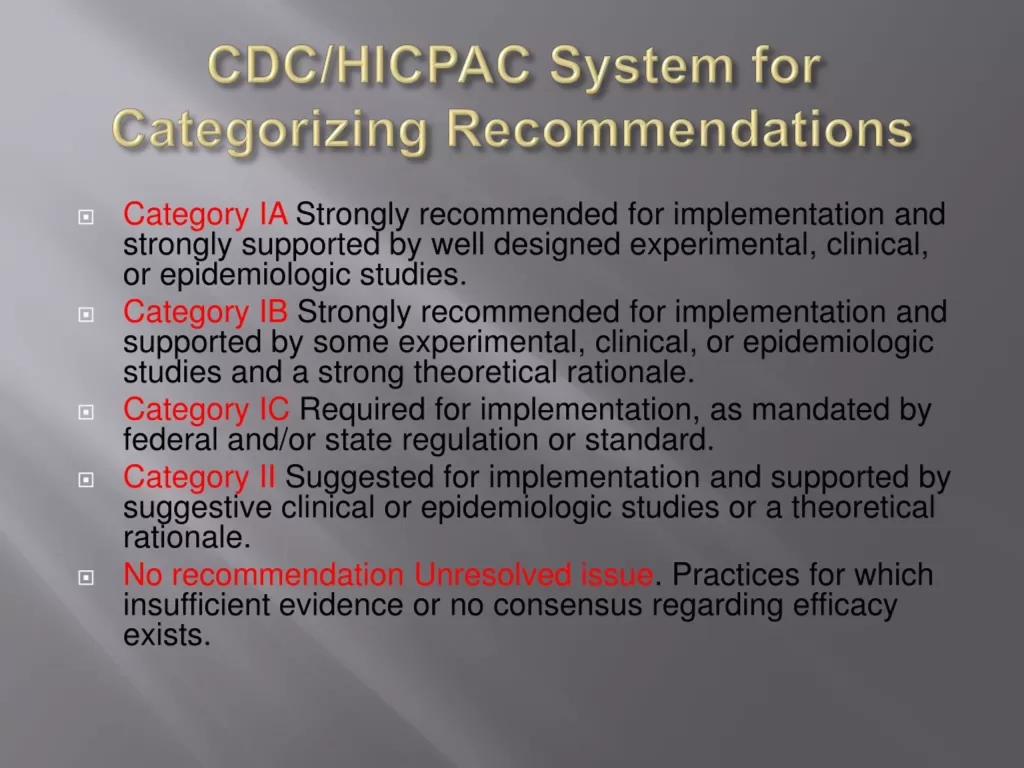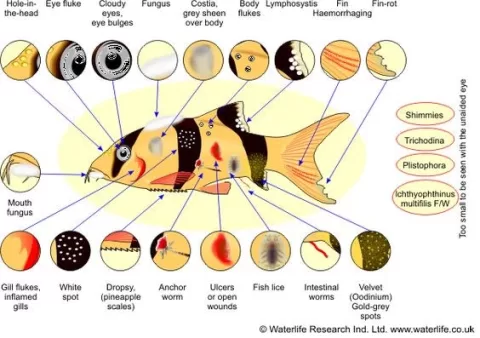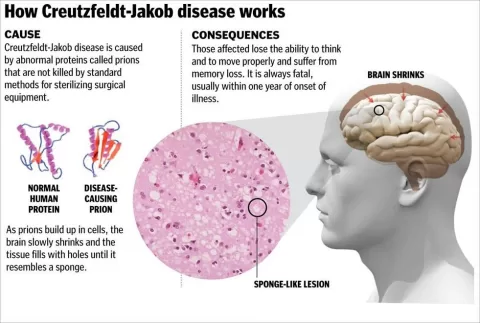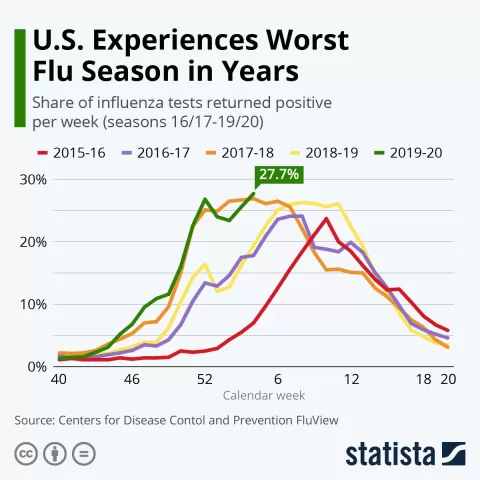The recent disbandment of HICPAC, the Healthcare Infection Control Practices Advisory Committee, raises significant concerns within the realm of healthcare infection control. This federal advisory group has long played a crucial role in shaping infectious disease guidelines and enhancing healthcare safety by providing vital recommendations to the CDC. Announced following an executive order by the Trump administration, the dissolution of HICPAC has left many healthcare professionals questioning the future of infection prevention standards in facilities across the United States. Established in 1991, this committee was instrumental in implementing best practices for infection control, which have become a cornerstone of patient and staff safety. As the landscape of infectious diseases evolves, the absence of HICPAC’s expertise could jeopardize the health and well-being of patients relying on robust infection control measures.
The termination of HICPAC, also known as the committee responsible for advising on practices related to infection control in healthcare, signifies a troubling shift in policy affecting public health. Frequently referenced as a leader in the guidance for healthcare safety, this advisory panel has been pivotal in crafting comprehensive protocols that address infectious diseases. With its disbandment, many are concerned about who will fill the gap left in the development of crucial infection prevention strategies. As infection control committees across the country seek to adapt to new challenges, the lack of authoritative input from such a seasoned group threatens to undermine established standards that protect patients and healthcare workers alike. The implications of this decision resonate deeply, as the fight against healthcare-associated infections continues amid a backdrop of evolving pathogens.
Impact of HICPAC Disbandment on Healthcare Guidelines
The disbandment of the Healthcare Infection Control Practices Advisory Committee (HICPAC) has sparked serious concerns among healthcare professionals dedicated to infection prevention. As a crucial advisory body, HICPAC developed guidelines that helped hospitals and healthcare facilities maintain safety and protect against the spread of infectious diseases. With its dissolution, the future of these evidence-based protocols is uncertain, creating a significant void in standard practices for infection prevention across the nation.
The loss of HICPAC means that hospitals may struggle to find reliable guidance on implementing effective infection control measures. Without the committee’s expert recommendations, healthcare facilities could face challenges in adhering to proper procedures for sanitation, personal protective equipment (PPE) usage, and patient isolation methods. This change could lead to varying standards of infection control, ultimately putting patients and healthcare workers at risk, especially during outbreaks of infectious diseases.
The Role of CDC in Infection Prevention Post-HICPAC
Following the disbandment of HICPAC, the role of the Centers for Disease Control and Prevention (CDC) in guiding infection prevention strategies has become even more critical. The CDC typically adopts HICPAC’s recommendations into its broader guidelines, which have been pivotal in shaping healthcare policies and procedures aimed at mitigating infectious disease risks. However, with HICPAC no longer operational, the CDC’s capacity to provide timely and expert-driven recommendations may be hampered, leaving gaps in essential public health strategies.
Furthermore, the CDC’s responsibility to ensure healthcare safety is now jeopardized as it navigates the absence of a dedicated advisory committee. Infection control guidelines, which rely heavily on input from expert committees like HICPAC, are not only important for managing day-to-day operations in healthcare settings but also essential when responding to emerging health threats. The dissolution of HICPAC could hinder the CDC’s ability to implement robust infectious disease guidelines, especially with increasing concerns over antimicrobial resistance and new viral outbreaks.
Concerns from Infection Prevention Groups
Healthcare infection control and prevention groups have openly voiced their concerns regarding the disbandment of HICPAC. Many professionals, including epidemiologists and infection preventionists, believe that the loss of this committee will reverse decades of progress made in healthcare safety and infection management. They argue that the absence of expert guidance will not only create uncertainty among healthcare facilities but also jeopardize the health of patients who are already vulnerable.
A joint statement from major professional organizations highlighted the potential risks posed by disbanding HICPAC amid a landscape of evolving infectious diseases. Without the ongoing development of updated clinical guidelines, healthcare facilities may be forced to rely on outdated protocols that may not adequately address current challenges. This situation raises alarms about the future effectiveness of infection prevention measures in hospitals and other healthcare environments.
Challenges in Infection Control Following HICPAC’s Disbandment
The disbandment of HICPAC presents various challenges that affect infection control efforts in healthcare settings. One immediate challenge is the lack of updated guidelines necessary for managing infection risks associated with emerging pathogens. With ongoing threats such as COVID-19 and other infectious diseases, the absence of regular, nuanced recommendations puts many healthcare facilities at significant risk during a crucial time.
Moreover, the reliance on ad-hoc guidelines from various sources could lead to inconsistencies in infection control practices across different healthcare institutions. This fragmentation may complicate training and protocol adherence for frontline clinicians, infection preventionists, and nursing staff. As healthcare environments work tirelessly to prevent healthcare-associated infections, the disbandment of HICPAC raises serious doubts about the overall safety of these settings, revealing a dire need for cohesive and expert-driven infection management approaches.
Legislative Actions Affecting Infection Control Practices
The actions taken by the Trump administration to disband groups like HICPAC reflect broader legislative choices that have implications for public health and infection control practices. The emphasis on reducing federal committees raises questions about the commitment to a robust healthcare infrastructure, especially regarding guidelines that inform effective infection prevention measures. Such unilateral decisions can comprise the collaborative efforts that have historically strengthened healthcare responses to infectious diseases.
Legislation affecting advisory committees can hinder the development of comprehensive guidelines needed to combat evolving threats. By sidelining expert groups such as HICPAC, policymakers may inadvertently compromise the healthcare system’s ability to protect both patients and workers from infections. This shift illustrates the complex interplay between governance and public health, showcasing how legislative actions can directly impact the frameworks that support healthcare safety.
The Importance of Expert Recommendations
Expert recommendations are integral to establishing effective healthcare infection control standards. The guidelines previously issued by HICPAC were grounded in research and public health expertise, highlighting the necessity for ongoing, evidence-based input to inform practices within healthcare facilities. The need for such recommendations becomes increasingly apparent as healthcare settings face new and emerging infectious threats.
As frontline healthcare workers rely on these guidance documents to create safe environments, the absence of a structured advisory committee like HICPAC places everyone at risk. Professionals argue that systematic reviews and expert consensus are vital for updating and maintaining infection prevention protocols. In this context, the value of collaborative efforts to curate infection control guidelines cannot be overstated, especially in safeguarding public health amidst rising concerns surrounding infectious diseases.
Public Health Implications of HICPAC Disbandment
Disbanding HICPAC has profound public health implications, given its critical role in forming the national framework for infection control. The absence of this expert group’s guidelines could weaken the national response towards not only existing but also emergent infectious diseases. As the healthcare community grapples with epidemiological challenges such as COVID-19, this loss is increasingly noticeable, leaving facilities without key recommendations that influence patient safety and healthcare worker guidelines.
The erosion of effective infection control guidance can lead to increased transmission of infections within healthcare environments, which in turn places greater strain on public health resources. The risk of healthcare-associated infections rises substantially when facilities lack the support necessary to implement best practices derived from systemic research and expert recommendations. Hence, HICPAC’s disbandment might lead to deleterious effects on public health at large, as a weakened infection control framework can impact broader community health outcomes.
Reactions from Healthcare Professionals
Healthcare professionals across various disciplines have expressed dismay at the disbandment of HICPAC and its implications for the field of infection prevention. Many have rallied together, emphasizing the need for a structured committee to address the significant gaps that will emerge in infection control strategies. Clinicians, nurses, and infection preventionists recognize the critical importance of having expert-driven guidance to navigate complex healthcare challenges sparked by infectious diseases.
Moreover, professionals argue that the disbandment of HICPAC contradicts decades of healthcare progress. Voices from the healthcare sector are advocating for the re-establishment of a committee that can provide timely and relevant guidance to ensure effective infection control. The consensus among many healthcare workers is clear: the absence of such expert recommendations can severely impact the safety and well-being of patients in healthcare settings.
Future of Infection Control Committees
In light of HICPAC’s disbandment, there is a pressing need to re-evaluate the role and function of infection control committees within the broader framework of public health. As healthcare settings strive to protect against infectious diseases, the establishment of new advisory committees or the revival of existing ones could help bridge the gap left by HICPAC. A new approach could focus on fostering collaboration amongst various stakeholders, including healthcare providers, epidemiologists, and public health experts.
Moving forward, it will be crucial to implement a model that emphasizes the need for continuous adaptation to emerging health threats. By creating inclusive spaces for dialogue and expertise sharing, future committees can ensure that evidence-based recommendations remain at the forefront of infection control practices. This collective effort could help ensure that the lessons learned from HICPAC’s vital contributions continue to inform and enhance healthcare environments.
Frequently Asked Questions
What is the impact of the HICPAC disbandment on infection control practices in healthcare?
The disbandment of the Healthcare Infection Control Practices Advisory Committee (HICPAC) significantly affects infection control practices within healthcare facilities. Without HICPAC’s expert recommendations, healthcare institutions face uncertainty in implementing evidence-based strategies for preventing healthcare-associated infections and maintaining safety standards.
Why was the HICPAC disbanded by the CDC?
The Trump administration disbanded the HICPAC as part of an executive order aimed at reducing federal bureaucracy. The committee, known for its vital role in providing guidelines on infection prevention and control, was informed of its dissolution through a letter from the CDC.
How does the absence of HICPAC guidance impact healthcare safety?
The absence of HICPAC guidance creates a notable gap in healthcare safety protocols. This disbandment potentially compromises the standards that protect patients and healthcare workers from infectious diseases, especially during times of public health emergencies.
What concerns have been raised regarding the HICPAC disbandment?
Concerns raised by infection prevention groups include the risks posed by the lack of expert-driven recommendations in infection control. Experts warn that dissolving HICPAC may threaten decades of progress in preventing infections in healthcare settings, increasing vulnerability to emerging pathogens and antimicrobial resistance.
How does HICPAC influence infectious disease guidelines in the U.S.?
HICPAC plays a crucial role in shaping infectious disease guidelines in the U.S. Although its recommendations are not legally binding, they are widely adopted by the CDC and significantly influence protocols implemented in hospitals, nursing homes, and other healthcare environments.
What are the main functions of HICPAC before its disbandment?
Before its disbandment, HICPAC was responsible for formulating and reviewing guidelines on infection control measures such as hand hygiene, use of personal protective equipment, isolation protocols, and environmental infection control, ultimately influencing patient safety in healthcare settings.
What reactions have emerged from the public health community regarding the disbandment of HICPAC?
The public health community has expressed strong opposition to the disbandment of HICPAC, with professional societies warning that the loss of this advisory group endangers national preparedness and poses risks to healthcare safety by eroding the framework for evidence-based infection prevention.
What was HICPAC’s role in addressing the COVID-19 pandemic?
HICPAC was integral in developing infection control guidelines during the COVID-19 pandemic. Its absence raises concerns about the provision of timely, expert recommendations essential for managing infectious disease outbreaks and ensuring healthcare facility preparedness.
| Key Point | Details |
|---|---|
| Disbandment Announcement | The HICPAC was disbanded through a letter from the CDC, as part of a broader effort to reduce federal bureaucracy initiated by the Trump administration. |
| Composition of HICPAC | The committee consisted of 14 members selected for their expertise in infectious diseases and related fields, meeting several times each year. |
| Role and Impact | HICPAC provided crucial guidelines on infection control that were widely adopted by hospitals and healthcare facilities to protect patients and staff. |
| Recent Controversies | HICPAC faced criticism for proposing potentially inadequate measures for airborne pathogen protection in their draft guidelines. |
| Community Response | Various professional societies have protested the disbandment, warning that it threatens progress in infection prevention. |
Summary
The disbandment of HICPAC has raised significant concerns within the healthcare community, highlighting the importance of expert advisory groups in combating infectious diseases. With over three decades of contributions to public health, the absence of HICPAC will create a critical gap in the guidance that hospitals and healthcare facilities rely upon during times of emerging infection threats. As stakeholders push for reevaluation, the implications of the HICPAC disbandment will continue to unfold, demanding attention to how the U.S. addresses infection control in the future.
The content provided on this blog (e.g., symptom descriptions, health tips, or general advice) is for informational purposes only and is not a substitute for professional medical advice, diagnosis, or treatment. Always seek the guidance of your physician or other qualified healthcare provider with any questions you may have regarding a medical condition. Never disregard professional medical advice or delay seeking it because of something you have read on this website. If you believe you may have a medical emergency, call your doctor or emergency services immediately. Reliance on any information provided by this blog is solely at your own risk.








